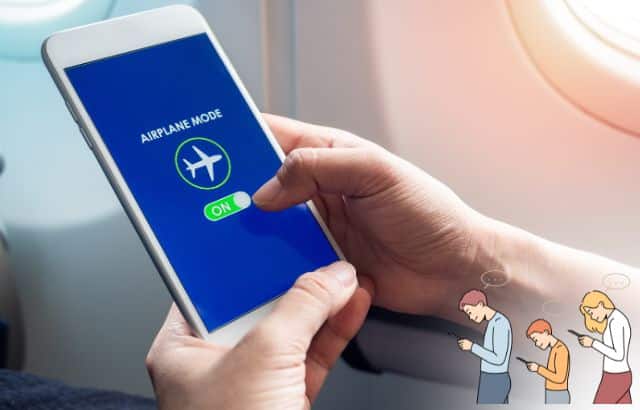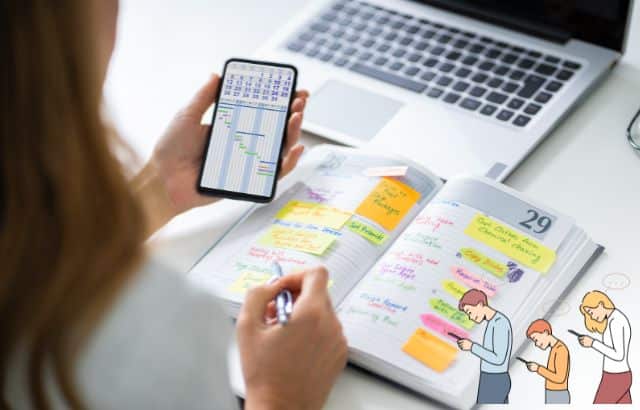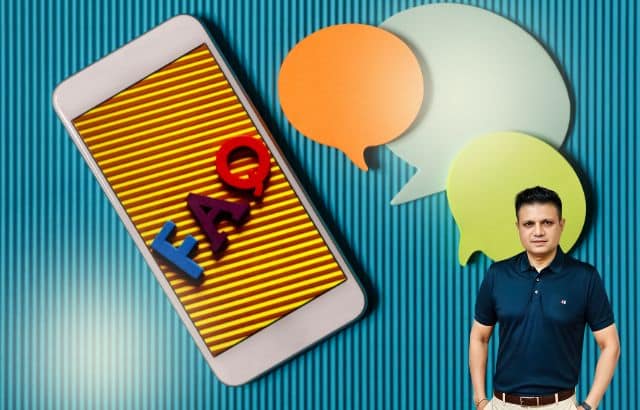In today’s hyper-connected world, cell phone addiction has emerged as a significant concern, fueled by the rise of instant messaging and social media. While technology enables us to stay connected, it often comes at a cost to our health and well-being. The constant need to check notifications and messages can lead to physical issues such as eye strain, back pain, and neck discomfort. Additionally, the psychological impact includes increased anxiety and disrupted sleep, which affects overall mental health and daily productivity.
Professional roles that demand constant connectivity, like paramedics and doctors, are particularly vulnerable to this addiction. However, the issue extends beyond high-pressure jobs, affecting teenagers and adults alike who find themselves constantly reaching for their phones. Business Astrologer and Astro Strategist Hirav Shah emphasizes the importance of taking deliberate breaks from digital devices to combat this growing problem. By implementing strategies such as managing screen time, utilizing phone features, and reducing app usage, individuals can regain control over their technology habits and improve their overall quality of life.
Table of Contents
Understanding Cell Phone Addiction

Cell phone addiction has become increasingly common with the rise of instant messaging and social media. While technology connects us like never before, it often compromises our health and well-being. For example, professionals such as paramedics and doctors, who need to be on call around the clock, are particularly susceptible to addiction due to their constant phone use. Yet, this issue extends beyond these high-demand careers. Teenagers and adults also face the risk, driven by the compulsion to frequently check notifications and messages. Veteran Business Astrologer and Astro Strategist Hirav Shah underscores the necessity of a social media detox to combat this pervasive problem, advocating for intentional breaks from digital devices.
Health Risks of Cell Phone Addiction
According to Hirav Shah, the health impacts of cell phone addiction are significant. Prolonged phone use can lead to eye strain, back pain, and neck strain from the habit of hunching over screens. Additionally, addiction may result in increased anxiety levels and disrupted sleep, which in turn affects concentration and overall mental health. Although completely avoiding addiction is challenging, adopting certain strategies can help mitigate its effects and reduce dependency.
Curb cell phone addiction – Practical Strategies to Reduce Phone Use
One effective method to manage phone addiction is to activate the silent mode. This approach helps diminish the urge to constantly check for new notifications. By designating specific times each day to review messages and updates, you can curb the habit of frequent phone checks and enjoy periods of digital respite. Another useful tactic is to leave your phone at home occasionally. This practice offers a substantial break from constant connectivity and can significantly lower addiction levels.
Curb cell phone addiction -Utilizing Airplane Mode and Do Not Disturb Features

Using airplane mode for several hours can be a powerful tool in reducing phone use. If the idea of disconnecting from technology feels daunting, start with shorter intervals and gradually extend them. For instance, you might begin by turning off your phone during meals or while pursuing hobbies, then increase the duration as you adjust to being offline.
The “Do Not Disturb” feature is another valuable tool. It blocks notifications and vibrations, allowing you to avoid interruptions during sleep or focused work periods. By enabling this feature during specific times, such as after work or during mealtimes, you can create a more controlled and peaceful environment.
Limiting Social Media Access

Turning off social media apps can help prevent the constant temptation to check your phone. Hirav Shah highlights that social media is a major driver of cell phone addiction. Individuals who use their phones as a substitute for real-life interactions are especially at risk. By reducing access to these apps, you can curb your addiction and improve your social interactions in the real world.
Implementing App Lock and Deleting Distractions

Creating an app password that locks out other apps when activated is a practical strategy to manage screen time. Use this feature primarily when focusing on work or study tasks. This method helps limit distractions from notifications and encourages more disciplined phone use.
Additionally, consider deleting distracting games or social media apps. Research indicates that students who used their phones during class had lower academic performance compared to those who did not. Removing these distractions can enhance focus and productivity.
Curb cell phone addiction – Setting a Phone Usage Schedule

Establishing a specific schedule for phone use can also be effective. For example, set times in the morning, at noon, and in the evening to check notifications. This structured approach helps reduce overall screen time and supports a healthier digital routine.
Curb Cell Phone Addiction: Effective Strategies -FAQs Answered by Hirav Shah

What are some effective methods to reduce cell phone addiction?
Answer: To reduce cell phone addiction, consider putting your phone on silent mode, setting specific times for checking notifications, and leaving your phone at home occasionally. Using features like airplane mode and “Do Not Disturb” can also help manage screen time.
How can I use airplane mode to limit phone use?
Answer: Activating airplane mode for a few hours can help reduce phone use. If disconnecting feels uncomfortable, start with shorter periods and gradually increase them. This method helps minimize distractions and encourages breaks from technology.
What is the “Do Not Disturb” feature and how can it help?
Answer: The “Do Not Disturb” feature blocks notifications and vibrations, preventing interruptions from calls, messages, and alerts. Using this feature during specific times, such as while sleeping or working, helps create uninterrupted periods of focus.
How can turning off social media apps help with addiction?
Answer: Turning off social media apps reduces the temptation to frequently check your phone for updates and notifications. This can help break the cycle of addiction and encourage more meaningful offline interactions.
What are some benefits of creating an app password to limit usage?
Answer: Creating an app password that locks out other apps helps limit distractions and manage screen time. This strategy is effective for maintaining focus during work or study periods by reducing the temptation to check other apps.
Why is it important to delete distracting apps?
Answer: Deleting distracting apps, such as games or social media, can improve concentration and productivity. Research has shown that removing these distractions can lead to better performance and a healthier balance between online and offline activities.
How can setting a phone usage schedule help reduce screen time?
Answer: Setting a specific schedule for checking your phone, such as once in the morning, at noon, and in the evening, helps manage screen time effectively. This structured approach reduces overall phone usage and promotes a healthier digital routine.
Conclusion
Hirav Shah concludes, “The key to overcoming cell phone addiction is to take breaks from screens. Although it may be challenging, following these strategies can help reduce or even eliminate your dependence on digital devices and social media.” By implementing these practical tips, you can regain control over your phone use and improve your overall quality of life.










